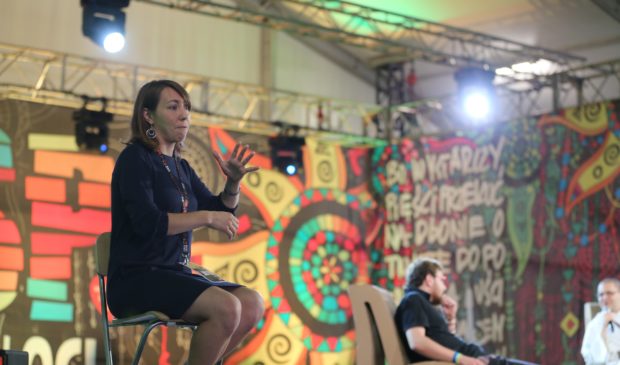Police department makes an effort to reach out to Austin’s deaf community
Tuesday, November 24, 2020 by
Victoria May The Austin Police Department is taking special measures to make sure its policies and procedures do not disproportionately affect community members with hearing loss.
At Sunday’s Special Meeting of the Mayor’s Committee for People with Disabilities, Officer Scott Marler met with city officials to discuss the training APD offers to educate officers on interacting with community members with disabilities.
Marler heads up the department’s community and culture team, which does outreach to different parts of the community.
According to Marler, the training APD offers cadets consists of two parts. One section, called Services for the Deaf, is mandated by the Texas Commission on Law Enforcement and officers must complete it in order to receive their basic peace officer license. The other part of the training is supplementary instruction specific to APD due to the large deaf population in Austin.
Marler called the TCOLE training “very basic,” saying it focuses primarily “on traffic stop interactions and not necessarily general interactions via 911 calls or community engagement.” The training provides officers with practical suggestions for effective communication with community members who have hearing loss.
“These (rules) are covered because they are sometimes different from what an officer has been taught. For safety it’s generally a rule of thumb that you don’t want anyone extremely close to you. You don’t want them within touching distance. However, we clearly cover that is a common practice for someone who is deaf or hard of hearing to get someone’s attention – to tap them on the shoulder or wave their arms.”
The TCOLE training works in conjunction with the Americans with Disabilities Act. Under the ADA, law enforcement agencies must provide communication aids and services, such as interpreters, for those who are deaf or hard of hearing in their interactions with the police. Agencies are also unable to charge people for the services provided.
TCOLE outlines best practice for officers who are unable to quickly obtain an interpreter, especially during circumstances where information must be obtained immediately for the safety of the general public. In these cases, officers are encouraged to use the notes app on their APD-issued cell phone to write messages back and forth.
However, Marler said that finding an interpreter is essential for deaf people who do not speak English.
Unlike the broad nature of the TCOLE training, APD’s supplementary training focuses specifically on Austin’s deaf community.
Cadets are educated on the history of sign language, deaf etiquette and deaf culture in the city. APD also hosts talks at the Texas School for the Deaf and Gallaudet University in order to foster communication about the different types of interactions a person who is deaf may have with a police officer.
During their time at the police academy, cadets must complete a community engagement project in which a speaker from the deaf community visits APD and gives a presentation. Following the presentation, cadets must complete an essay about what they learned.
Recently, Michael Kubota of the Texas Association for the Deaf visited cadets with an interpreter.
“It’s one of my favorite things because it’s such a unique experience for a lot of these cadets to not only speak with Michael, but also have an interpreter present and get a feel for what that kind of conversation looks like,” Marler said.
Cadets also partake in role-play scenarios to navigate how best to deal with people who may have different disabilities.
Photo by Ralf Lotys (Sicherlich), CC BY 4.0, via Wikimedia Commons.
This story was written by a journalism student at the University of Texas at Austin. The Austin Monitor is working in partnership with the UT School of Journalism to teach and publish stories produced by students in the City and County Government Reporting course.
The Austin Monitor’s work is made possible by donations from the community. Though our reporting covers donors from time to time, we are careful to keep business and editorial efforts separate while maintaining transparency. A complete list of donors is available here, and our code of ethics is explained here.
You're a community leader
And we’re honored you look to us for serious, in-depth news. You know a strong community needs local and dedicated watchdog reporting. We’re here for you and that won’t change. Now will you take the powerful next step and support our nonprofit news organization?



